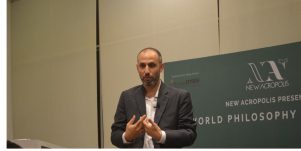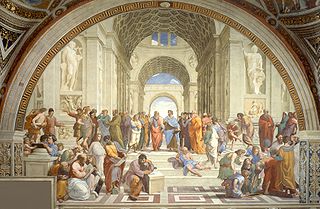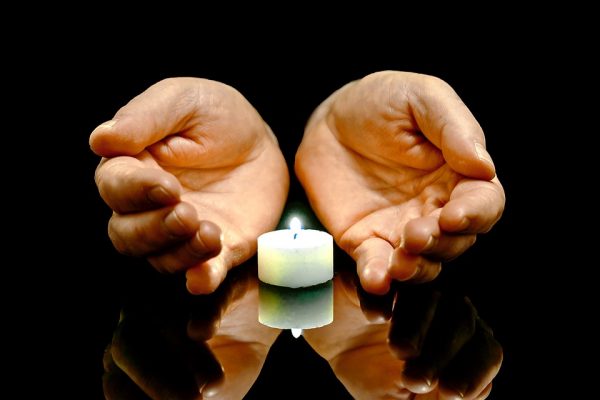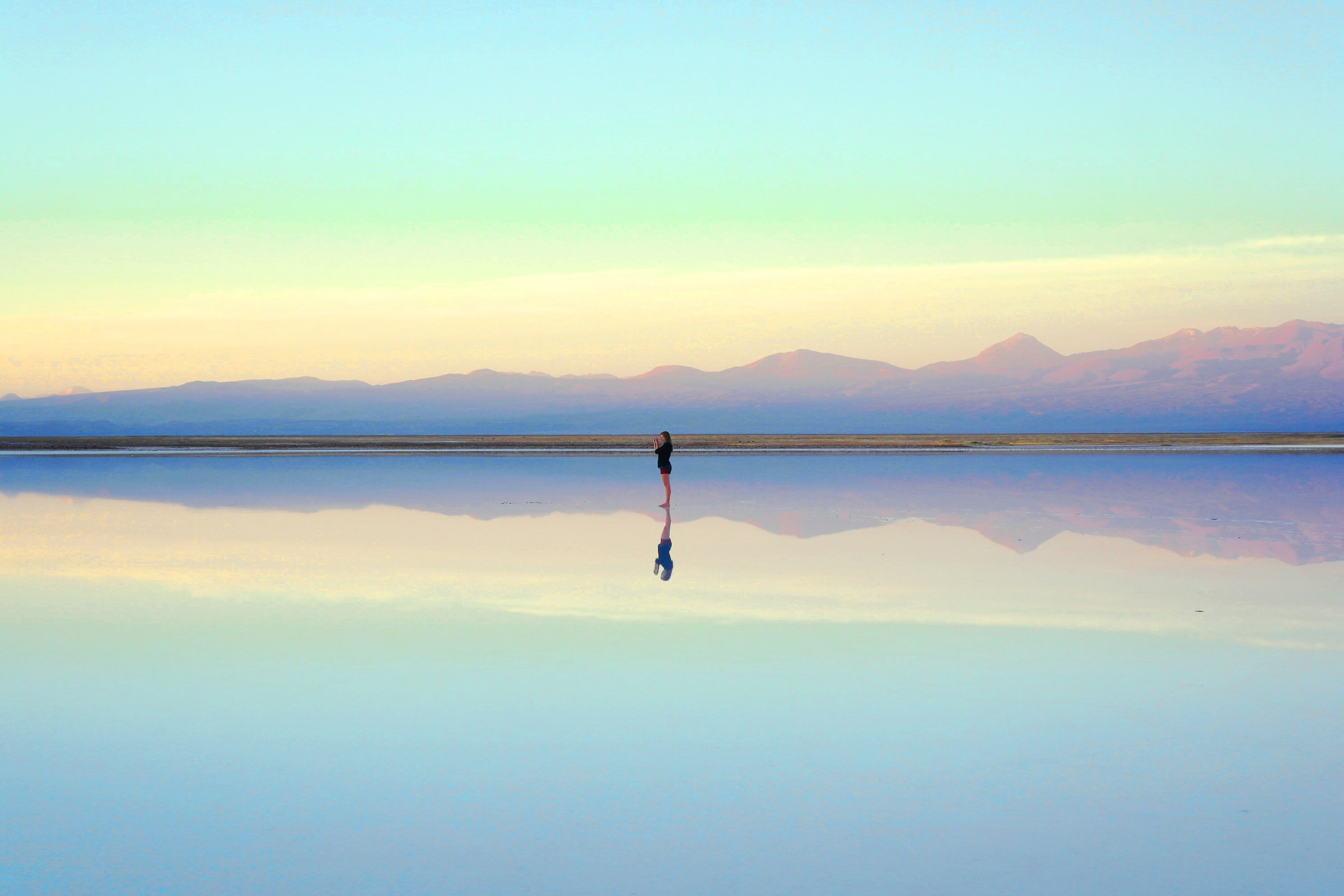Philosophy for Living
Article By Yaron Barzilay
posted by Kurush Dordi, February 7, 2017
 Today is a special day; it is the day that UNESCO marks as World Philosophy Day. It is great for us to be able to celebrate philosophy. Especially, since we shall also use the opportunity to launch a book written by Delia Steinberg Guzman (Honorary President of the International Organisation New Acropolis), titled Philosophy for Living. She has written quite a lot of books, published and translated in many languages. This is the first one that is translated to English, and I am very happy that we have this opportunity today, to launch it together.
Today is a special day; it is the day that UNESCO marks as World Philosophy Day. It is great for us to be able to celebrate philosophy. Especially, since we shall also use the opportunity to launch a book written by Delia Steinberg Guzman (Honorary President of the International Organisation New Acropolis), titled Philosophy for Living. She has written quite a lot of books, published and translated in many languages. This is the first one that is translated to English, and I am very happy that we have this opportunity today, to launch it together.
As the title suggests, we call for celebrating philosophy every day, everywhere. Because philosophy is all about life – all about living. And if we don’t live philosophy, maybe we should not call it philosophy.
I would like to share with you why philosophy is so essential. It is not just an interesting subject. It is said that the real power of philosophy lies in its ability to improve the human condition. That is to say – it not only has the power to cause change (because change could be for the worse) but it can improve. Moreover, it is noteworthy that Ms. Irina Bokova, (Director General,UNESCO) insists that by initiating World Philosophy Day UNESCO does not hold exclusivity over the day or the subject; not UNESCO, nor any one nation. Philosophy is what makes us human, and if we lose that, we lose something essential about being human. She explains, “philosophy is more than an academic subject. It is a daily practice that helps people to live in a better, more human way.” This is essential, especially for our world today, for the improvement of humanity. It is a way of life: Philosophy for Living.
As we explore the meaning of Philosophy, it is interesting to mention that just yesterday, Oxford Dictionary announced its annual Word of the Year: Post-truth – reflecting what they called “a highly charged political 12-months”. First said to have been used in 1992, the announcement claimed that its usage had increased by 2000% in 2016, compared to last year. So what really does it mean? Post-truth – as if people no longer care for the Truth. It’s like a joke of history – that facts don’t matter anymore. And it becomes casual, for example, for elected officials to openly make inaccurate or false claims. Alarmingly, Oxford’s Casper Gratwool even says that ‘post-truth’ could become one of the defining words of our times. Has our world come to such a moment where the Truth no longer matters? Is it not relevant anymore? Have we forgotten the call of our ancestors: Satyameva Jayate, Truth Shall Always Prevail? Truth has the quality of being eternal. It is related to reality, it is always valid. Meaning, that what is not real cannot sustain; not in economics, not in politics, not in anything. We should not be surprised at the collapse of our economies. If we just backtrack to 2008, many remember it as an economic disaster. Yes; but I say it was a philosophical disaster. Because there was simple truth, simple facts, that were completely ignored. How can it be that Truth is not important anymore? That’s just an indication that humanity has lost its direction.
Does truth exist at all? This is a great question with which to start the philosophical search because it has huge implications. If in reality there were no direction, no good, no bad, no meaning or purpose; it’s one thing. But if there is a Truth, it may be so vast and wonderful, that even the great philosopher Socrates, famously said to be the wisest man in Athens, realized, “All I know is that I know nothing”. In recognizing the vastness of Truth, perhaps he discovered an opening of a path, not the end of the road. I would say that philosophy is a search; a search for the Truth that improves man, improves me!
Let’s go back in time, 2600-2700 years, to the times of a wise and enigmatic man named Pythagoras. There are many stories about him all suggesting that he was a great teacher, a master. Tradition describes his disciples as so special that just by looking at them one knew that they were from Pythagoras’ school. It is said that it was amongst them that the word ‘philosophy’ was first coined. That is not to say, that philosophy is a Greek invention. Because as we go forwards and backwards in time, universally, through ancient India, Egypt, and the Americas, we will always find the search for wisdom. But the word ‘philosophy’ comes from Greek origin; and combines philo and sophia, love and wisdom. The story goes that when his disciples came to Pythagoras in admiration they spoke to him as sophos, a wise man. But Pythagoras corrected them, saying, “I am no sophos…I am but a philo-sophos,” a lover of wisdom, one searching for wisdom. It is like saying, “Don’t call me a master, I am but a disciple.” And so it is said, emerged the word ‘philosophy’ – the love of wisdom.
And love is all about living. It cannot be intellectual. You don’t love your wife by telling her that after a lot of research and study, you have concluded that you love her. Love is life; something that initiates movement, change, growth. Love is a force of attraction, a need. Not necessarily a bodily need. But a need of the soul.
What really is this need, and where does this need come from? Aristotle says that the need comes from wonder, from astonishment at encountering the way life manifests around us. If one lacks wonder, he lacks motivation to search, to learning. Wonder, makes sense, right? That’s one idea.
But Plato, like Socrates and perhaps Pythagoras before him, says that this need comes from remembering – the soul comes to the world from an unlimited spiritual realm. However, it forgets its origins the moment that it is born in the physical realm. Hence, in reality we are part of the spiritual world of archetypes; of Beauty, Fraternity, and Truth. And it is due to this that the soul yearns to re-unite with it. The deep need of the soul exists because that is who we are. According to Plato, therefore, the entire process of learning is actually the process of remembering who we are, awakening our true identity.
Yet, it is easy to fall into the trap of intellectualism. The world is so big and so many seemingly wise people have said so much, and have so many different opinions. It seems that each one has his own idea of truth. And Philosophy therefore, is relegated to the art of debate, exchanging ideas and opinions, meant to be contradicted for the sake of argument. But I think philosophy really is all about living. It is not about what people say; but how they live it.
“Everyone should be able to answer the question about what they are looking for in their own life? It’s impossible to walk if we don’t know where we want to go. What do I want to be do with my life? This is an essential question and if we don’t have any clear idea about this, what victories can hope to achieve?”
As in the case of the universal symbol of a mountain as the abode of the divine, or of spiritual evolution, while the descriptions of this mountain may vary greatly, what is important is to climb. The more one climbs, the closer he comes to the peak, the centre, to unity – and the higher, more accurate, his perspective of life. You will see things differently. Obviously, each tradition might climb a specific trail on that mountain, and have different descriptions of the ascent. What is important is that it takes you upwards. So if it is just an exchange of ideas, gathering of information or knowledge – that is not interesting. Without a true search, I think knowledge can sometimes become too heavy, as depicted in Rodin’s sculpture, The Thinker. Instead, the teaching must foster an upward process of change. It is a voyage, a practice, and although it requires knowledge and study, it is most important to practice because it is impossible to learn, without implementing what we learn, causing us to change, grow, improve.
“If Philosophy is the love of wisdom then that love must give rise to movement, love cannot stand still because it’s always searching for what it needs, what it longs for. To be a philosopher requires movement because it is a love that always asks for more and urges us to go & get it. A constant refreshing of everything we know it is to re-read what we have read to listen again to what we think we already understood because every new search will lead us to new treasures.”
If I don’t change, I stay at the same level…and I may fantasize that I have learned simply by gathering more and more knowledge. To implement is like climbing the mountain. When I climb, I do not remain in the same place. My ability to observe, the ability to learn, also changes. If you go in the wrong direction, it is ok – because you learned something – change your course. What matters is not to reach a destination, but that there is a path, a process of change and growth, of becoming better and happier than what I was before.
In order to do this, it is necessary to have self confidence, as it relates to knowing oneself – self conviction. Because the path of philosophy is not the path of endless doubting, it’s not just about questioning. It is also about finding answers without which we would be wasting time. Each answer changes us, and develops more confidence.
Conviction is a high degree of psychological intellectual and moral commitment. It arises from becoming progressively more convinced on the basis of sound arguments, evidence, experience and of supporting models and foundations…Convictions arise from the constant exercise of our inner powers. And the transformation of changeable opinions into stable and considered judgments.
Fear usually causes us to avoid embarking upon this adventure. Fear of making mistakes. But why are we so ashamed of mistakes? The biggest mistake is not to make mistakes because the ones who don’t make mistakes doesn’t do anything. Mistakes will only show us where to correct ourselves to become better.
This is philosophy; a voyage, a search, a yearning for the Truth, the mysteries of life. Every step forward is to face ever greater wonders, bigger questions, of the great mysteries of life of which we are each a part. For us the philosophy is the greatest adventure. It is to challenge yourself, to change, to grow. This is what our world really needs today, more than ever – Philosophy!
Related posts:
Permissions required for the publishing of this article have been obtained
Article References
Compiled by Harianto H Mehta from a talk given on World Philosophy Day - 17th November, 2016.




What do you think?